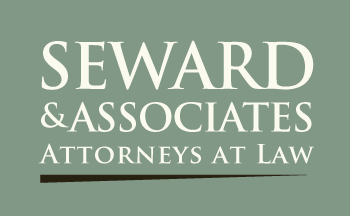We all remember the scene in “Goodfellas” when Ray Liota is explaining the intricacies of a mafia-loan repayment plan. As he so eloquently puts it: “Business bad? Pay me. Oh, you had a fire? Pay me. Place got hit by lightning, huh? Pay me.” In the wake of the worst financial crisis since the great depression, debt collection agencies are springing up all across the country, buying up debt at pennies on the dollar. While some of these companies’ collection tactics are not quite as severe as the ones seen in “Goodfellas,” they are none-the-less illegal.
The Fair Debt Collections Practices Act, or FDCPA, was enacted by Congress in 1977 to limit abusive collection tactics. Congress found that abusive collection tactics resulted in higher numbers of personal bankruptcies, marital instability, job loss, and invasions of privacy. The FDCPA laid dormant for close to thirty years, until some smart consumer lawyers discovered that it can be used in the war on fly-by-night debt collection companies.
So how do you know if you’ve been a victim of “abusive” debt collection tactics, and if so, what is your remedy? First, your debt must be consumer debt. Sorry no business debt allowed. Second, it must be the consumer who is being contacted. Third, it must be a third party debt collection agency, not the original creditor. And finally, the behavior must be “abusive, harassing, oppressive or embarrassing, false, misleading or illegal.”
Examples of behavior that violates the FDCPA include: contacting third parties (friends, neighbors, etc), unless the debt collectors are attempting to locate you; calling at unreasonable hours; and calling repeatedly (provided you answer the phone each time). Additionally, a debt collector cannot insult you. Believe it or not, debt collectors have actually made statements such as “you should throw yourself in front of a train” or “perhaps you should pay your bills instead of being a little baby factory.” Now these statements clearly violate the FDCPA, but what about empty threats? Statements such as “we are going to garnish your paycheck or seize your property if you don’t pay us the money you owe” can violate the FDCPA because a judgment from a court is first needed to garnish anyone’s wages.
So now we know what type of behavior violates the FDCPA, but what are you entitled to if you have been a victim of this behavior? Well the FDCPA provides for a fixed amount of damages in the amount of $1,000 plus some consequential damages that stem from the violation, and attorney’s fees. Now, you may be saying to yourself “why would a collection agency care about a measly $1,000?” The answer is they really do not. It’s the attorney’s fees that are the proverbial monsters under their beds. Often times attorney’s fees can outweigh the $1,000 fixed damage award ten to one, or even twenty to one and it’s the collection agencies that are responsible for these fees, NOT the debtor.
What about proof? After all, it’s just your word against theirs, right? Not necessarily. We’ve all heard that pre-recorded message that says “this call may be monitored for quality assurance purposes.” The reason for this message is that some states, Washington included, are “two party states.” This means that both parties must give actual consent to being recorded. Otherwise, the person recoding the conversation could be liable both criminally and civilly. An argument can be made that this message grants authority for you, the debtor, to record as well. This is only an argument and not an absolute truth, so proceed with caution. Also, Washington law provides an exception to the consent requirement when the communication is made for the purposes of harassment. So if you find yourself being victimized by harassing creditor phone calls, you may want to consider recording the conversation. Even if you don’t, many times the debt collectors will have recorded the conversation in an effort to improve quality assurance.
It’s important to remember that there is a one year statute of limitations on your claim. So, if you feel you may have a FDCPA claim against a debt collector, don’t procrastinate. Each year hundreds, if not thousands of violations go unnoticed and unpunished. Don’t be a victim, make the debt collectors an offer they can’t refuse.
Joe Schodowski is a contributing author to this blog and has been admitted to practice law in the state of Washington. He limits his practice to the areas of family law and criminal and civil traffic matters. The Law Offices of Joseph Schodowski, PLLC works in association with the Law Offices of Richard D. Seward, PC.
